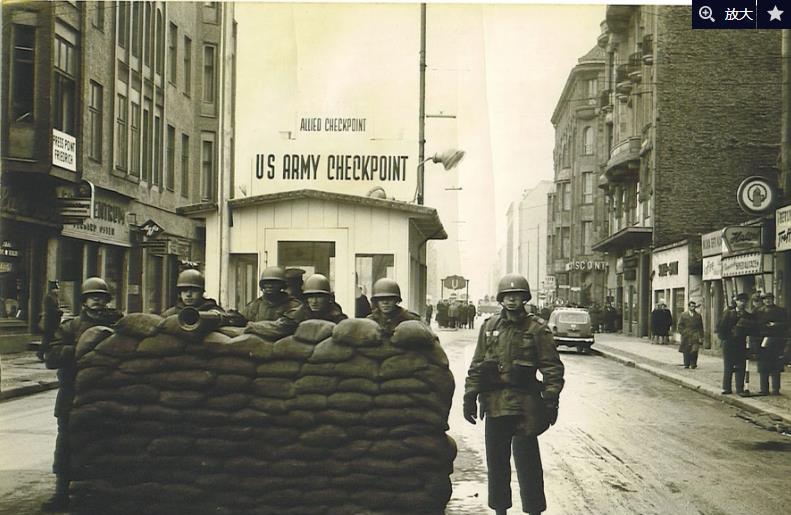The Berlin newspaper of 1950 described american soldiers stationed in Germany as follows: "Dressed casually, drinking Coca-Cola, chewing gum..." For young Germans who were confused about their future, American soldiers were the new idol, the embodiment of the "American way of life", representing freedom, the liberation of individuality and a new life.
At that time, there was a large number of American trends on the streets of Germany: Germans wore "Made in the United States" jeans; Hollywood movies were popular in movie theaters; food became more and more American, and drinking Coca-Cola became a new fashion;
People's love for American Ford cars also overshadows German Mercedes-Benz, Volkswagen and other car brands. The U.S. military also built a number of clubs to provide social places for Americans and Germans, such as the famous "Bathtub Club", one of the most famous jazz clubs in Berlin, which west Germans call "magical places".
Later, the raucous and wild American rock music spread to West Germany, and in the restrained and dull social atmosphere of the time, it became a way for German teenagers to rebel against their parents.
Between 1958 and 1960, when Elvis Presley served in the military in Friedberg, Hesse, he was enthusiastically sought after by West German fans, and teenagers dressed themselves up as Elvis Presley: smoking, waxing, keeping Elvis curls, etc.
American soldiers were favored by German women at the time. Due to the war, Germany lost a large number of men, and many German women interacted with American soldiers, on the one hand, to find emotional sustenance, on the other hand, they could also get benefits.
The German writer Wolfgang Keppen wrote in his post-war novel Pigeon Grass: "Hungry women had access to a variety of foods, as well as gifts such as chocolate, nylon stockings, lipstick and cigarettes, which were still very scarce in post-war Germany. American soldiers were attracted to the beauty, hard work, and generosity of German women. ”
West Germany and the U.S. military explicitly forbade American soldiers from interacting with German women, but they could not stop it, and later, this ban was lifted, but the West German government still banned German women from marrying Western soldiers. It was not until 1947 that the marriage ban was lifted. In the years that followed, tens of thousands of women in Germany married American soldiers every year.
America's generosity to West Germany after the war created the conditions for Germany's "economic miracle" of nearly 20 years. Many Germans fell in love with American culture and politics as a result. In 1954, West German Chancellor Adenauer met warmly with then U.S. Secretary of State Dulles in Germany.
Adenauer said: "It seems that the best Europeans come from the United States is correct. On June 26, 1963, then-US President John F. Kennedy gave a speech on "The Berlin Wall and Freedom" to hundreds of thousands of Germans in front of Berlin's Schöneberg City Hall.
He said: "I am a Berliner. Everywhere Kennedy went, voices such as "I love you" and "Germany loves America" could be heard everywhere. Der Spiegel magazine commented that "this is the honeymoon period of the relationship between virtue and virtue".
At that time, some Germans also stood up and openly opposed US policy. In 1968, German university students held a massive anti-Vietnam War march with large signs that read, "Americans, get home." However, this political tension was soon overshadowed by the next wave of American fever.
After the 1980s, American culture also began to infiltrate East Germany. Costumes, music, and even breakdancing set off a wave of American fever in East Germany.
In 1988, American rock singer Bruce Springsteen held a concert in East Berlin that attracted a record-breaking 160,000 people. The people of East Germany at the time regarded him as a "hero of the working class", and later he chanted at concerts that "I hope that one day all barriers will be torn down" became a common ideal of all Germans.
